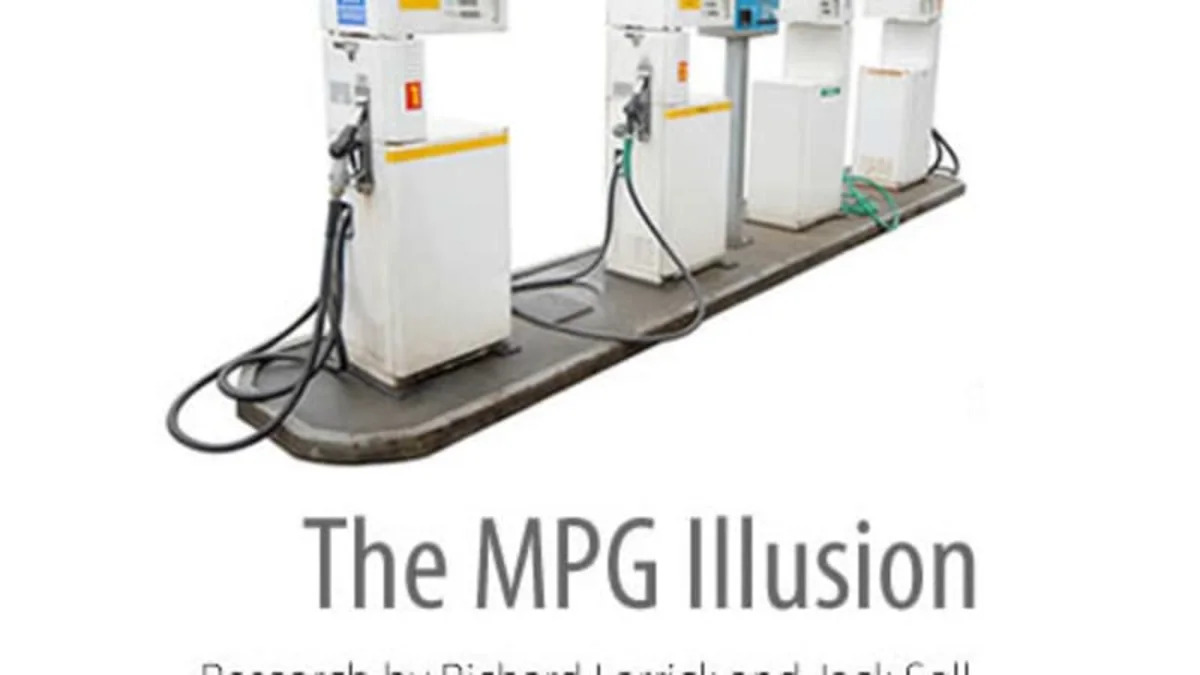Back in June, we took a look at the distinction between miles per gallon (MPG) and gallons per mile (GPM). At first blush, it may seem this is a six of one, half-dozen of another situation. It's not. MPG is the most common number cited when people want to understand how efficient a car is, especially in the US. Richard Larrick, Associate Professor of Management and Organizations at Duke University, says that the MPG number is wholly inadequate to understand the way that car models get cleaner through the years. Larrick and his team are totally in favor of cars with higher MPG ratings, but just want to make sure that everyone understands that - purely in terms of how much fuel is burned over 10,000 miles - a jump from 10 MPG to 11 MPG gives the same savings as going from 33 MPG to 50 MPG. In each case, you'rve reduced your consumption by about 100 gallons.
To help understand GPM, Larrick has put up the MPG Illusion Calculator on his MPG Illusion website. The Calculator uses the mileage data from the EPA we're all familar with, but presents it in such a way that you get to see how many gallons it takes to drive a set distance. So, for example, I punched in a comparison of the Prius (46 mpg) and the Civic hybrid (42 mpg). If you drove each vehicle 1,000 miles, how much more gas would you use in the Civic? Go ahead and guess. The Calculator says it's just two gallons. You can also use the flash-based tool to compare all 2009 models sold in the US.
Larrich wrote to AutoblogGreen that, "These calculations are critical to helping people see their true gas consumption (and carbon emissions) and not be tricked by MPG. I'm eager to see either the EPA or Consumer Reports adopt GPM, and am trying to provide the necessary tools in the meantime." What's your GPM?
[Source: MPG Illusion]
To help understand GPM, Larrick has put up the MPG Illusion Calculator on his MPG Illusion website. The Calculator uses the mileage data from the EPA we're all familar with, but presents it in such a way that you get to see how many gallons it takes to drive a set distance. So, for example, I punched in a comparison of the Prius (46 mpg) and the Civic hybrid (42 mpg). If you drove each vehicle 1,000 miles, how much more gas would you use in the Civic? Go ahead and guess. The Calculator says it's just two gallons. You can also use the flash-based tool to compare all 2009 models sold in the US.
Larrich wrote to AutoblogGreen that, "These calculations are critical to helping people see their true gas consumption (and carbon emissions) and not be tricked by MPG. I'm eager to see either the EPA or Consumer Reports adopt GPM, and am trying to provide the necessary tools in the meantime." What's your GPM?
[Source: MPG Illusion]


Sign in to post
Please sign in to leave a comment.
Continue